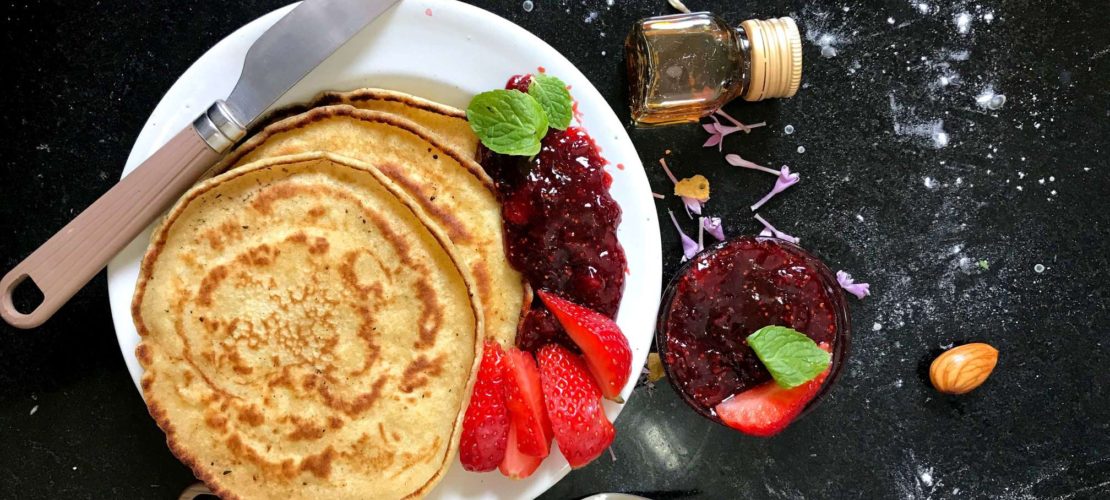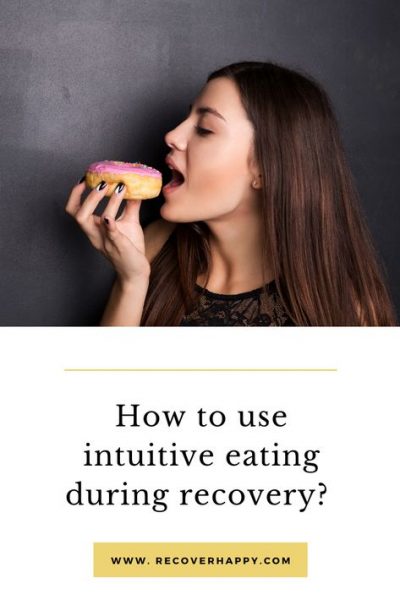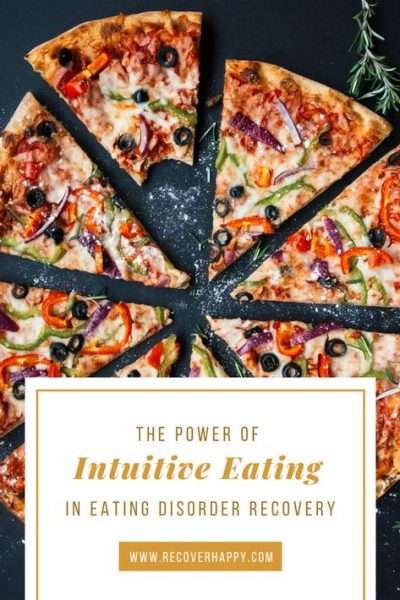
By Tanja _ November 18, 2019
Do you remember when you were a child and you ate when you were hungry and stopped once you felt full? Some days you might have eaten large amounts of food and on other days hardly anything. This is called intuitive eating.
However, as we grow older we start to lose our intuitive sense of when to eat and when to stop eating. This is partly due to social aspects, such as the traditions that we should always clear our plate or that we need to “earn” our dessert. We are taught to look at ingredient lists and nutritional labels. We are conditioned to eat at certain times and taught that certain foods are good for our health and others are bad. All this information and well-meant lifestyle advice from our family, friends and the media influence our eating habits. It leads us to forget how to communicate with our body and to lose trust in our natural ability to feed ourselves appropriately.
What is intuitive eating?
Intuitive eating is an anti-diet approach, which was developed by the two pioneers Evelyn Tribole and Elyse Resch, in 1995. It is about re-learning how to understand, listen and trust your body, so that you know instinctively when, what and how much to eat. Intuitive eating is about learning to eat a wide variety of foods that satisfy your appetite.
This approache recognises that only you can know if you are full or hungry. Only you can know what you would like to eat and what your physical and emotional needs are. Only you can give yourself unconditional permission to eat whatever you want to eat without feeling guilt or regret. No one else can do this for you; not your family, partner, friends and definitely not a diet plan. If you want to eat a pizza or fancy ice cream, that is fine.
There is no division into black and white categories of “good” or “bad food and there is also no “right ” or “wrong” way to eat. The best way to eat is the way that works for your unique needs.
Is it possible to return to intuitive eating?
After reading this you might feel a little bit discouraged, as you might worry that you are not ready for intuitive eating yet. You might be at the start of your eating disorder recovery journey and a structured meal plan might be necessary to help you to restore a healthy weight and to normalise your eating patterns. Abandoning this structure and relying purely on your intuition too soon might make you anxious, due to your hunger and fullness cues not being reliable yet. Fortunately, there are many ways to apply the principles of intuitive eating while following a meal plan.
Intuitive eating is seen as a very promising new approach for eating disorder recovery and has become very popular among eating disorder recovery communities. Studies have shown that intuitive eating is associated with many positive effects on mental and physical health, body image and eating behaviours. It appears to be one of the best methods to maintain a positive and healthy relationship with food, body and mind.
Are you ready for intuitive eating?
While you might want to jump into intuitive eating right away, I highly recommend that you ask yourself the following questions first, to make sure you are ready for it:
- Do I recognise that my eating disorder is linked to a deeper psychological issue and is the cause, rather than the result, of my body image and eating behaviour problems?
- Am I ready to make significant changes to the way I think about food, such as avoiding descriptions of food as “good” or “bad”?
- Can I deal with the discomfort that such changes might cause?
- Am I able to connect with my physical and emotional needs, while avoiding negative coping behaviours such as binge-eating or over-exercising?
How to implement intuitive eating in your eating disorder recovery?
If you can answer all these questions with an honest “yes”, you might want to start with a short intuitive eating trial, to identify if you are ready to follow your hunger and fullness cues. Monitor yourself carefully during this trial and then ask yourself the following questions:
- How did I respond to my body’s hunger and fullness cues?
- Did I try to compensate for feelings of anxiety by eating less or more?
- Were there times when I treated intuitive eating as an opportunity to eat less than usual? If so, did I act on these thoughts?
If you felt comfortable during this trial and didn’t struggle at all, be proud of yourself and try to implement intuitive eating more and more in your daily routine. If you feel that you are not ready for this yet and would rather continue with your existing meal plan, don’t be sad or frustrated. Instead, see it as a strength, as it reflects your desire to maintain your eating disorder recovery.
If you want to learn more about how you can apply intuitive eating in your recovery journey, read my blog article about the 10 principles of intuitive eating in eating disorder recovery.
Keep in mind that intuitive eating is a process rather than a quick solution that promises results overnight. Becoming an intuitive eater is a journey that gradually expands and is different for everyone. Don’t pressure yourself too much. Be kind and patient with yourself while you learn how to become an intuitive eater.
You don’t need to struggle alone on your recovery journey. Simply get in touch to discuss how I can help you.
It is entirely possible to overcome an eating disorder – I have done it, others have done it and so can you!



